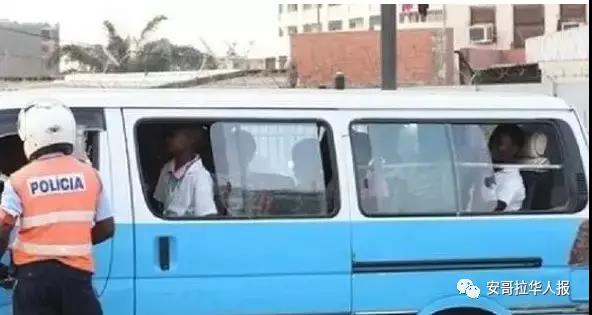
According to the National Report, Angola began to cancel some inter-provincial road checkpoints.The inter-provincial transport taxi drivers who use these routes daily for people and goods welcome the announcement of the decommissioning of some checkpoints on national roads.They said that this was the end of the police "trouble" and the end of the "tips" that were often forced to pay.
For example, the use of national roads 100 and 230 to drive minibuses and vans is a necessary choice for transporting people and goods (these vehicles are loaded with agricultural products, clothing, building materials, furniture, etc.). For many, it is one of the fastest and cheapest solutions for transporting agricultural products and traveling to other provinces.
It is not possible to take a minibus, or someone who cannot pay for airfare and travel by air, to consider the minibus as a solution to other provinces.On the national road, although some people agree that there should be more monitoring, those who use this road for trade every day, such as taxi drivers, think that some checks by the police make them unacceptable.
According to the respondents, they must abide by the rules and abide by the traffic police. Although they welcomed the news that some checkpoints will be suspended, many inter-provincial taxi drivers interviewed by the National News are somewhat afraid to talk about it because they think they may be subject to retaliation and their service time is very high. Long, on the same national road, almost all police know you and your car.
At National Road 100, we spoke with 33-year-old Esaú Gouveia, who drove an interprovincial taxi for 11 years and arrived at Benguela from Roan.He said that closing the checkpoint was good news, but there are still Cabo Ledo, Rio Seco, Rio Longa, Porto Amboim, Sumbe checkpoints have not been deactivated.
Esaú Gouveia believes that there are more checkpoints from Roan to the southern Kwanza province, and from Ben Angola to Luang, the number of checkpoints is terrible. When the driver arrives at the checkpoint, he tries to reach an understanding with the police. If not, he will stop or pay a fine.
Esaú Gouveia said that the problem between these taxi drivers and the police is that many people do not have a rental license or the document has expired. Therefore, "I was very happy when we heard that the police department was about to stop the checkpoint.
Esaú Gouveia invited reporters to take part in his trip to feel the work of the checkpoint, which they thought was discontinued but did not rule out surveillance, as some checkpoints might continue to ensure this safety.
Although the decommissioning checkpoints are popular with many drivers, EsaúGouveia believes that it cannot be completely decommissioned because many violations will occur on these roads.On the national road of Roan to Malange (EN230), taxi driver Josué Nhangue also believed that the police should cooperate with the police to maintain road safety. However, he disagreed with the EN230 setting up too many checkpoints.
Josué Nhangue said that from 2010 to 2015, there were 14 checkpoints on the road, which was later reduced to seven. Roan reached Malange and has stopped all checkpoints. From Malange to Mussende (South Kwanza).
José Nhangue recalls, “The practice of extortion has been reduced since the implementation of the special action. In the past, both foreign and domestic drivers, whether certified or undocumented, must have money to pass.”
"For us, the problem is not the number of checkpoints, but the behavior of the police. When the taxi driver does not "cooperate", his car is unloaded halfway through the journey.Therefore, it is necessary to leave a portion of the money in all travel. "Tid" is required for legality. Now we can work with peace of mind and all the provincial taxi drivers are celebrating," José Nhangue stressed.



